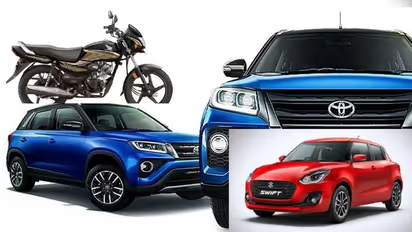Increase car mileage in winters: Tips for car and bike
Published : Nov 21, 2024, 02:03 PM IST
Why does mileage drop in winter? Low temperatures, thicker engine oil, and tire pressure changes all contribute. Learn how to mitigate these effects and maintain optimal fuel efficiency during the colder months.
Get all the latest Automobile News, including updates on Electric Vehicles, new car and bike launches, reviews, and auto industry trends. Stay informed about mileage comparisons, performance insights, and expert opinions to guide your next vehicle choice. Download the Asianet News Official App for all the latest updates from the world of automobiles.
